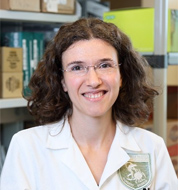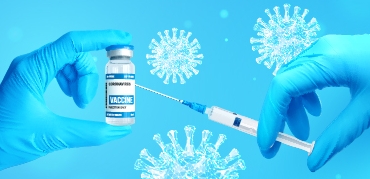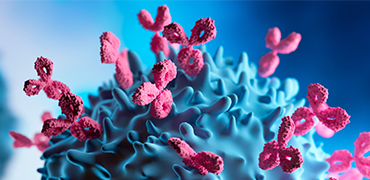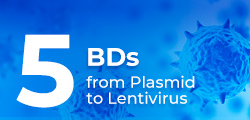-
REAGENT SERVICES
Hot!
-
Most Popular Services
-
Molecular Biology
-
Recombinant Antibody/Protein
-
Reagent Antibody
-
CRISPR Gene Editing
-
DNA Mutant Library
-
IVT RNA and LNP Formulations
-
Oligo Synthesis
-
Peptides
-
Cell Engineering
-
- Gene Synthesis FLASH Gene
- GenBrick™ Up to 200kb
- Gene Fragments Up to 3kb now
- Plasmid DNA Preparation Upgraded
- Cloning and Subcloning
- ORF cDNA Clones
- mRNA Plasmid Solutions New!
- Cell free mRNA Template New!
- AAV Plasmid Solutions New!
- Mutagenesis
- GenCircle™ Double-Stranded DNA New!
- GenSmart™ Online Tools
-
-
PRODUCTS
-
Most Popular Reagents
-
 Instruments
Instruments
-
Antibodies
-
ELISA Kits
-
Protein Electrophoresis and Blotting
-
Protein and Antibody Purification
-
Recombinant Proteins
-
Molecular Biology
-
Stable Cell Lines
-
Cell Isolation and Activation
-
 IVD Raw Materials
IVD Raw Materials
-
 Therapy Applications
Therapy Applications
-
Resources
-
- All Instruments
- Automated Protein and Antibody Purification SystemNew!
- Automated Plasmid MaxiprepHot!
- Automated Plasmid/Protein/Antibody Mini-scale Purification
- eBlot™ Protein Transfer System
- eStain™ Protein Staining System
- eZwest™ Lite Automated Western Blotting Device
- CytoSinct™ 1000 Cell Isolation Instrument
-
- Pharmacokinetics and Immunogenicity ELISA Kits
- Viral Titration QC ELISA Kits
- -- Lentivirus Titer p24 ELISA KitHot!
- -- MuLV Titer p30 ELISA KitNew!
- -- AAV2 and AAVX Titer Capsid ELISA Kits
- Residual Detection ELISA Kits
- -- T7 RNA Polymerase ELISA KitNew!
- -- BSA ELISA Kit, 2G
- -- Cas9 ELISA KitHot!
- -- Protein A ELISA KitHot!
- -- His tagged protein detection & purification
- dsRNA ELISA Kit
- Endonuclease ELISA Kit
- COVID-19 Detection cPass™ Technology Kits
-
- Automated Maxi-Plasmid PurificationHot!
- Automated Mini-Plasmid PurificationNew!
- PCR Reagents
- S.marcescens Nuclease Benz-Neburase™
- DNA Assembly GenBuilder™
- Cas9 / Cas12a / Cas13a Nucleases
- Base and Prime Editing Nucleases
- GMP Cas9 Nucleases
- CRISPR sgRNA Synthesis
- HDR Knock-in Template
- CRISPR Gene Editing Kits and Antibodies
-
![AmMag™ Quatro Automated Plasmid Purification]() AmMag™ Quatro automated plasmid purification
AmMag™ Quatro automated plasmid purification
-
![Anti-Camelid VHH]() MonoRab™ Anti-VHH Antibodies
MonoRab™ Anti-VHH Antibodies
-
![ELISA Kits]() ELISA Kits
ELISA Kits
-
![Precast Gels]() SurePAGE™ Precast Gels
SurePAGE™ Precast Gels
-
![Quatro ProAb Automated Protein and Antibody Purification System]() AmMag™ Quatro ProAb Automated Protein and Antibody Purification System
AmMag™ Quatro ProAb Automated Protein and Antibody Purification System
-
![Target Proteins]() Target Proteins
Target Proteins
-
![AmMag™ Quatro Automated Plasmid Purification]() AmMag™ Quatro automated plasmid purification
AmMag™ Quatro automated plasmid purification
-
![Stable Cell Lines]() Stable Cell Lines
Stable Cell Lines
-
![Cell Isolation and Activation]() Cell Isolation and Activation
Cell Isolation and Activation
-
 IVD Raw Materials
IVD Raw Materials
-
![Quick
Order]() Quick Order
Quick Order
-
![Quick
Order]() Quick Order
Quick Order
- APPLICATIONS
- RESOURCES
- ABOUT US
- SIGN IN My Account SIGN OUT
- REGISTER
Webinars » Identification of Relevant Antigenic Targets for Successful Liver Cancer Immunotherapy
Identification of Relevant Antigenic Targets for Successful Liver Cancer Immunotherapy
HCC is a major cause of cancer-related death in the world and the current available treatments are effective only at an early stage. For advanced HCC the only approved therapy is Sorafenib (a multi kinase inhibitor) which has low response rate (about 3%). New immunotherapies for HCC, like anti- PD-1 treatment, can achieve a higher response rate, but still in only a minority of patients (20%). To boost this rate, it is critical to guide the immune response towards relevant antigens expressed by all tumor cells. Genome-wide sequencing of HCC showed presence of mutations that theoretically could give rise to neoantigen-specific T cell responses. However, the presence of these immune responses has not been investigated yet. Our approach is to focus on mutations that are expressed on all cancer cells, like mutations in driver oncogenes. The central goal is to identify neoantigens in HCC and evaluate the presence of an immunological response to HCC- specific neoantigens with particular attention to hot-spot mutations in driver oncogenes.
In this webinar, we will cover
Background on Hepatocellular Carcinoma and how the liver microenvironment affects the immune cellsRelevant examples of successful/promising immunotherapies in hepatocellular carcinoma patients (cytokines, mAbs, TILs, CARs)Our hypothesis: successful immunotherapy depends on targeting the relevant antigensOur screening model: focus on specific genes that are clinically relevant for the tumor progression and identify T cell receptors able to recognize neoantigens within those genes
Webinar Details
- Date: April 10th, 2019
- Time: 9:00-9:45 AM EST, 2:00 – 2:45 PM EST
- Speaker:
 Anna Pasetto, Ph.D.
Anna Pasetto, Ph.D.
ssistant Professor, Karolinska Institutet
Anna Pasetto, PhD, recently joined the Karolinska Institute in Stockholm to work as assistant professor and managing director of the pre-GMP facility in the department of Laboratory Medicine. She received her Master Degree in Molecular Biotechnology in 2007 from Alma Mater Studiorum Bologna University, Italy. She then moved to the Karolinska Institute where she received her PhD in Immunology in 2012. Dr. Pasetto joined the laboratory of Dr. Steven Rosenberg at the National Cancer Institute, NIH in 2013 and her research was focused on the isolation of TCR genes from mutation-reactive tumor infiltrating lymphocytes in metastatic solid cancers.
Related Services
Speaker-related Webinars
Identify the optimal protein purification strategy for your recombinant protein production
Are you challenged with obtaining sufficient amount of high purity proteins for your applications? Almost unavoidably, every protein purification step results in some degree of protein loss.
Recombinant protein expression & purification
Are you struggling with the amount and/or purity of your recombinant protein? Attend this online seminar for solutions to the challenges in recombinant protein expression & purification.
Accelerating Lead Identification Through Paramagnetic Bead Purification Technology
High throughput purification is a critical step in antibody engineering and lead identification. Paramagnetic bead technology allows a single step purification of targets by simply adding the beads directly
Efficient stable cell pool/cell line development for large-scale antibody and protein production
Interested in rapid and efficient stable cell pool/cell line development for large-scale production of your recombinant antibodies and proteins? If so, this webinar may be for you.
Chaperone co expression strategies for recombinant soluble protein production in E. Coli
Recombinant protein expression in E. coli often results in the formation of insoluble aggregates called inclusion bodies.
Latest Webinars
Find More Peptide Categories »
Applications and Challenges of Neoantigen Peptides in Personalized Cancer Vaccines
Nov 04, 2024

Harnessing mRNA immunization strategy for challenging GPCR protein antibody discover
Apr 12, 2024

Enhancing Precision Medicine: GenScript's Expansion into GMP grade API Production and Neoantigen Peptide Synthesis
Mar 01, 2024

-




































